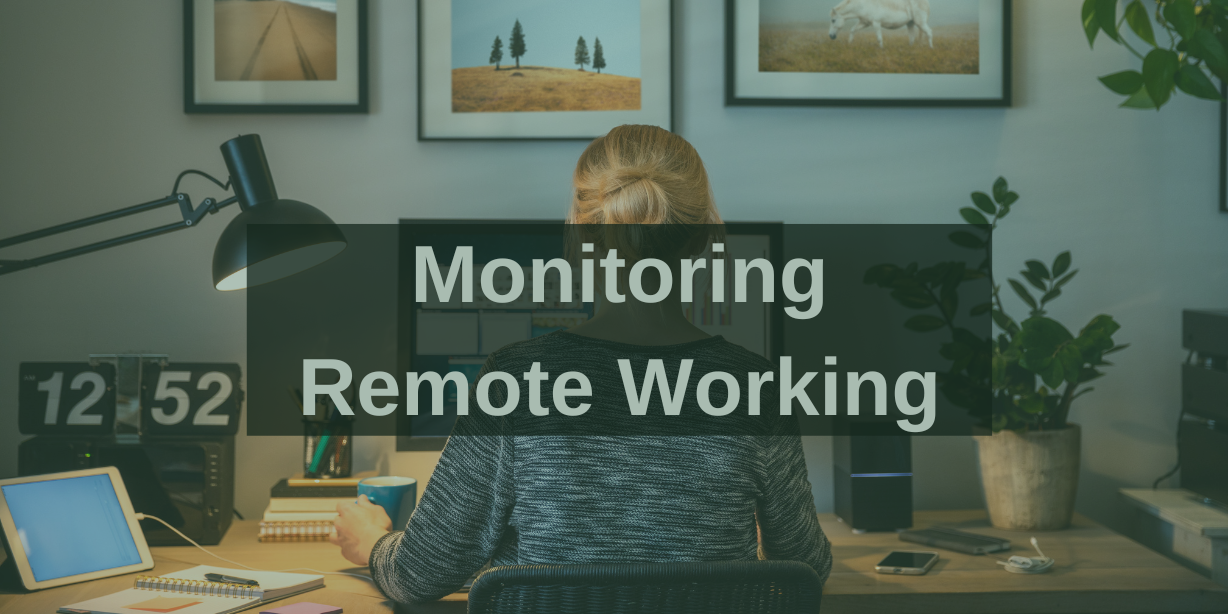Yes – to a degree!
Almost 3 years on since the mass office exodus of February 2020, many employees are still permitting a degree of home working.
There is a huge gap in perceptions between employees and employers on whether home working is beneficial or not. Employees love it! Employers are happy when everything is going well. According to a YouGov survey, 60% of workers who worked from home say they are more productive when working from home – however, only 33% of business decision makers thought their staff were more productive working from home.
Just how much can you monitor homeworkers to assess their productivity levels? Is it even legally possible? Let’s find out.
Assessing performance
The good news is that it is possible to monitor homeworkers to keep track of their productivity. However, you must ensure compliance with the relevant legal provisions – such as UK GDPR, the Investigatory Powers Act 2016, and other relevant regulations. While these do not prohibit monitoring of homeworkers, there are restrictions in place, and monitoring must be transparent, proportionate and necessary.
Most employers rely on tracking email activity, time tracking software or a project management app. Employees are comfortable knowing the extent to which they are being monitored but some systems are open to abuse. Did you know that it’s possible to purchase a dongle which acts as an automated mouse which keeps the computer as active even if the employee is not at their desk? Trust us – we’ve seen it all!
Sometimes the software used to track performance simply does not match up to the results or suspicions employers face. This usually results in an investigation into misconduct as detailed below.
Concerns about misconduct
Where there are concerns about misconduct, it is possible to implement new monitoring of home workers. If the concerns are serious enough , the monitoring can be implemented without prior notification to the employee, in some extreme circumstances.
That being said, most IT providers can monitor usage remotely and then, upon suspicion of misconduct can provide detailed analysis of work. Implementing extremely intrusive monitoring or a ‘big brother’ style review has been found to remove trust and often damage employee-employer relationships beyond repair. With that in mind, any additional monitoring on the suspicion of misconduct should be implemented with care.
Business Protection
As a slight aside but a relevant point of interest, we encourage all businesses who have remote workers to ensure that contracts of employment contain strong enough protections against documents being used inappropriately or copied and restrictive covenants to prevent employees setting up in competition and poaching customers and / or using your documents. There’s a lot to think about but unfortunately we have experience of remote workers who ahve worked from home, copied documents and poached clients and set up competitor businesses. Don’t fall into the same position!

Things to consider before monitoring
Here’s a quick list – if you monitor homeworkers, you should ensure that you:
- conduct a data protection impact assessment (DPIA) before introducing any new monitoring activity;
- are transparent and provided detailed information to employees about your monitoring activities;
- obtain a lawful basis for monitoring data – such as ‘legitimate interests’;
- ensure that any monitoring is proportionate to what you’re trying to achieve;
- obtain lawful authority to intercept communications, such as phone calls and emails by strictly following the Investigatory Powers Act 2016 (this won’t happen very often).
Get in touch if you need guidance on the above!
Employment Law Solutions can help.
If you have any concerns about the productivity or otherwise of a home worker, please get in touch for a free consultation on your options or for a free review of any documents.





